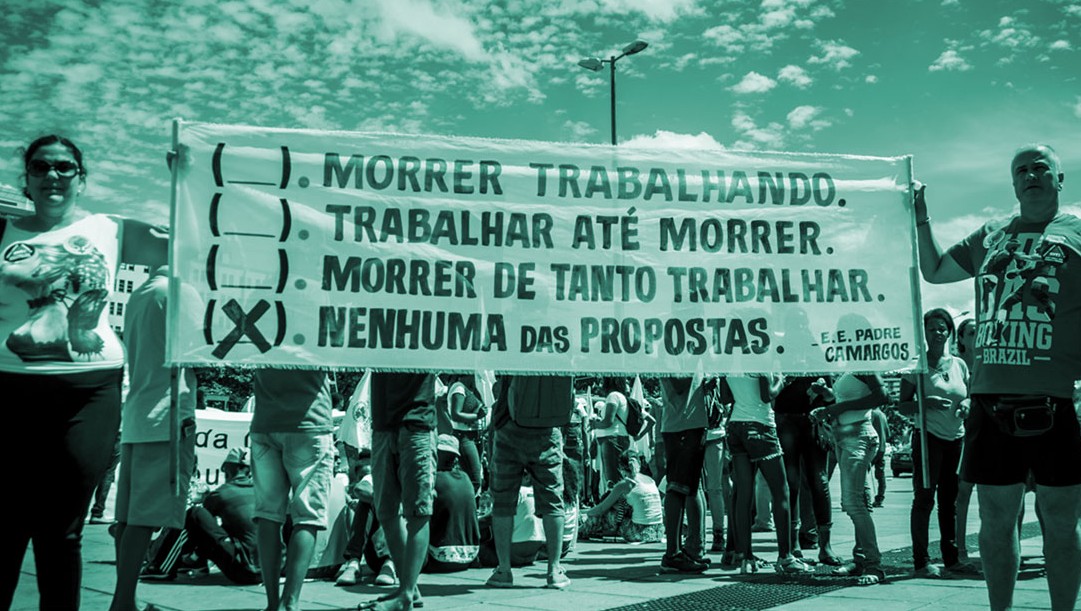On Monday, February 19th, as millions of Brazilians participated in a General Strike against the coup government’s proposed retirement reform amendment, Congress announced that it will delay voting on the measure until December. To the Central Única dos Trabalhadores (CUT/Unified Workers Central), Latin America’s largest labor union federation and largest strike actor, this is a clear sign that Temer was unable to rally enough votes to pass the amendment. For the past year the CUT, along with its social movement and labor union federation partners in the Frente Brasil Popular and Povo Sem Medo coalitions, has treated blocking the proposed retirement reform as its number one policy priority. In addition to a series of general strikes that started with the largest in Brazil’s history, on April 28, 2017, the unions spent the last year sponsoring community debates on the reform proposal in city councils, churches and neighborhood associations across the country. They also worked with the alternative press to show the dangers of the proposed reforms and worked locally across the country to pressure elected officials against supporting the amendment. These tactics appear to have worked as, fearing defeat, Temer’s coalition continually pushed back voting on the amendment over the past year, finally announcing yesterday that the vote will not take place until after the presidential elections in December.
Although the government’s official excuse for delaying voting on the amendment is the state of martial law that was declared in Rio de Janeiro (which, according to the constitution, impedes any constitutional amendment votes) voting has been pushed back repeatedly, most recently in December, 2017, as Temer’s governing coalition has been unable to guarantee the 308 votes needed to pass the amendment in Congress. Last Friday, February 16, CUT leadership accused the Temer administration of declaring martial law in Rio de Janeiro, in part, to cover up its failure in rallying enough votes to pass the amendment.
Regarding the victory in blocking the coup government’s Washington Consensus-style pension reforms, CUT national President Vagner Freitas says, “We have to celebrate, but it is a momentary celebration. For people like us who are at war, we have to remain permanently mobilized for the fight.”
According the Freitas, the suspension of all constitutional amendment proposals until after the elections, including the retirement reforms, is a defeat for the coup government and a victory for the working class, which has kept the pressure up through protests, strikes, social media actions and pressure on congressmen. “We removed the jewel from the crown, which is the pension reform that the Coup’s financiers demanded”.
Under the banner of “I want to retire”, millions of people participated in yesterday’s general strike. Highlights include:
Dozens of major highways and roads closed off with burning tires, including avenida Interlagos in São Paulo, closed by striking chemical factory workers, and highway 101 in Rio de Janeiro.
Workers in the automotive, chemical, pharmaceutical, governmental, petrochemical, transportation and banking industries in dozens of cities across the country refused to show up for work.
Street protests took place in cities across the country.
There were protests in Airports in São Paulo, Brasilia and Porto Alegre.
Together with members of the MST, union workers held protests in front of federal pension ministries in Goiania, Porto Alegre, Curitiba, Passo Fundo, Cuiabá, Campo Grande and Criciúma (PR), where the pension ministry workers held a work stoppage in solidarity with the protesters.
[qpp]

